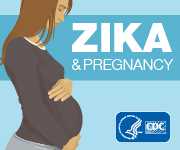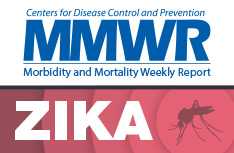CDC Activities
CDC Activities in Florida
- As of May 9, 2017, there have been 84 CDC staff deployments to Florida since the beginning of the response.
- As of March 28, 2017, there have been 79 CDC staff deployments to Florida since the beginning of the response.
- Since January 2016, CDC has sent materials to Florida for approximately 25,000 Zika virus antibody tests, including enough materials for approximately 6,000 tests sent in August in response to a request from Governor Scott.
- CDC’s Atlanta, GA, and Fort Collins, CO, laboratories are testing specimens from pregnant women and are working with Florida on other possible support for Zika laboratory testing.
- As of May 17, 2017, CDC has received 2,910 specimens from Florida and has performed 1,563 rRT-PCR tests, 1,132 anti-Zika IgM tests, and 1,155 Plaque Reduction Neutralization Tests (PRNT).
- As of April 30, 2017, CDC has provided Florida with nearly $50 million in Zika-specific funding and more than $29 million in Public Health Emergency Program (PHEP) funding that can be used toward Zika response efforts.
- CDC has supported paid media for education and outreach to help residents and visitors in Florida understand how to protect themselves and their communities from Zika virus. These materials include digital, radio, and outdoor advertisements such as billboards, bus shelters, metro stops, mobile LED trucks and aerial banners placed in Miami-Dade County between July and November.
See more information on Zika in Miami-Dade County, FL.
CDC Activities in Puerto Rico
CDC staff continues to support Puerto Rico in all aspects of the Zika outbreak including:
- Evaluating vector control interventions and implementing an island-wide vector control program
- Improving diagnostic tests
- Establishing the first surveillance system for cases of Guillain-Barré syndrome, as well as an investigation to better determine the association between Zika virus infection and the neurologic condition
- Conducting community engagement activities with the purpose of implementing mosquito control programs at the local level
- Assessing whether testing for the presence of Zika virus by using Trioplex rRT-PCR test for Zika, dengue, and chikungunya viruses in whole blood rather than serum or urine improves diagnostic capacity among pregnant women in Puerto Rico through a partnership between the Puerto Rico Department of Health and CDC. Whole blood testing among pregnant women would require less blood, provide quicker results, and would potentially have improved sensitivity for detecting recent Zika virus infection.
- The CDC Foundation collaborates with CDC and multiple organizations to provide a range of contraceptive options to women and their partners who want to delay or avoid pregnancy during the Zika outbreak in Puerto Rico.
- Supporting the development of health education campaigns in Puerto Rico in collaboration with CDC Foundation, such This is How We Stop Zika (Detén el Zika), a multimedia communication campaign that provides steps for pregnant women and communities to follow to protect themselves from Zika virus infection.
Additional Resources
- Fighting Zika 24/7: CDC Response to Zika
- Pregnancy & Birth Defects Task Force: Activities in Puerto Rico
- Page last reviewed: May 17, 2017
- Page last updated: May 17, 2017
- Content source:





 ShareCompartir
ShareCompartir